Best books for Operating SystemIn this article, you will learn about the best books for the operating system. But before discussing the best books for the operating system, you must know about the operating system. What is the Operating System?An operating system serves as a link between the user and the device's hardware. It is responsible for all functions of the system. It's also responsible for managing both software and hardware components and maintaining the system's working properly. All computer programs and apps require an operating system to do any task. The operating system provides capabilities that aid in operating apps and are used via the proper programming. Users are the most key part of the OS. The users may control and create things by inputting data and executing various programs and services. After that comes the task of implementation, which handles the computer's overall operations and also helps in the movement of various functions such as images, movies, worksheets, and various others. An operating system executes fundamental tasks such as recognizing keyboard input and displaying the output. It also keeps track of the disk's directories and active files. It functions as a controller and ensures that different programs and users remain signed in and don't clash on the computer system. It offers protection and safety while allowing users to access the system easily. Microsoft Windows, iOS, Linux, and Ubuntu are some examples of operating systems. Advantages and disadvantages of the Operating SystemThere are various advantages and disadvantages of the Operating System. Some advantages and disadvantages of the operating system are as follows: Advantages
Disadvantages
Top books for the operating systemThere are various books for the operating system. Some books of the operating system are as follows:
Operating System Concepts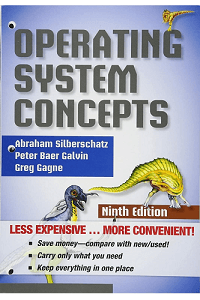
Authors: Abraham Silberschatz and Peter Galvin This book explains all of the fundamental concepts that underlie OSs. The book includes various examples that are relevant to Oss, including UNIX, IBM, Apple, Solaris, Windows NT, and Linux. The introduction of java technology has illustrated important concepts in operating systems. The book uses the concept of java technology to demonstrate topics such as multitasking, CPU scheduling, process synchronization, deadlock, and security. There are various examples of OSs like Windows NT, Solaris, and Linux. A separate chapter on threads explains how the OS manages thread scheduling. Operating System: A Design-oriented Approach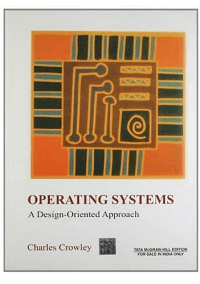
Author: Charles Crowley This book covers all of the fundamental ideas of operating systems and demonstrates how they have evolved into their present forms. Code segments and case studies are available for various operating systems, including MacOS, MS/DOS, Windows NT, OS/2, and various UNIX versions. The author also went through design tools and important approaches for designing and implementing OS data structures. However, the overall approach is UNIX-oriented, and the book also covers how to implement the mentioned concepts in various major operating systems. A simulator is provided for instructors and students to run the code implementing the OS. Design of the UNIX Operating Systems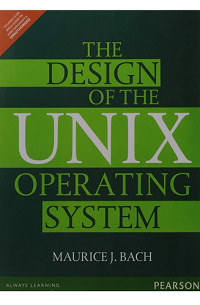
Author: Maurice Bach This book describes the essential principles of internal algorithms and deconstructs the relationship between the operating system's kernel and the programmer interface. It may be used by programmers to code more efficiently or to compare the algorithms used in UNIX to those used in other operating systems. The author has also gone into the evolution of OS in an easy-to-understand manner. Some of the activities in the book demonstrate concepts at a deeper level, while others are investigative in nature. They differ in difficulty, with the most difficult ones denoted with an asterisk. Operating Systems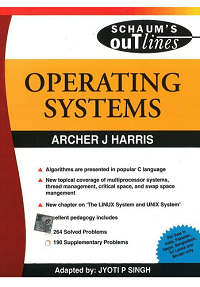
Author: Archer J Harris This book is written for professionals and students who require reviewing key topics and improving problem-solving skills to pass graduate or exams. The book describes the important underlying principles of all major OS designs, including Linux, UNIX, and DOS. Various concepts include file systems, memory, virtual memory, device I/O, synchronization, and security. These are explained concisely, followed by solved examples after every concept. There are separate chapters for basic C, C++, FORTRAN 77 and 90, Java, Pascal, and Modern Structured COBOL programming. Operating Systems: A Concept-Based Approach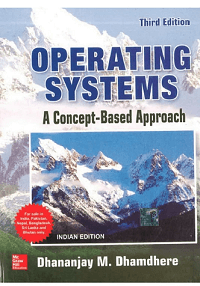
Author: D M Dhamdhere The book contains exact definitions and concise explanations of essential operating system concepts. This book is ideal for students studying operating systems. The book includes concepts, approaches, and case studies that are well integrated with numerous design and implementation details. The book explains each operating system concept and the latest technologies such as encryption and security. The book also includes various case studies that are tied to real-world operating system experiences. Guide to Operating Systems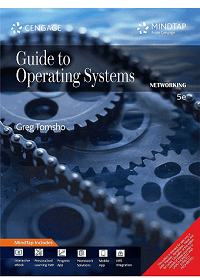
Author: Greg Tomsho This operating system book allows you to examine operating system theory, installation, configuring operating system and hardware, file systems, updating, security, hardware alternatives, virtualization, network connectivity, maintenance, storage, resource sharing, and troubleshooting. This book will help you to learn more about different operating systems in an easy-to-understand and practical way. This book helps you via the basic concepts of computer OS step-by-step. The book covers Fedora Linux, Windows Server 2012 R2, Windows 10 and earlier Windows client OS, and earlier Windows server OS, with a preview of Windows Server 2016, Mac OS X El Capitan, and older Mac OS. Furthermore, the author gives large information that will prepare you to work with various operating systems and will encounter them in your career or line of work. Operating System Concepts: Windows Xp Update 6th Edition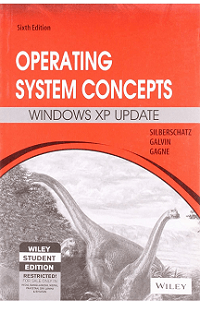
Author: Silberschatz Galvin Gagne The book provides a theoretical introduction to the fundamental ideas of operating systems and an overview of their internal workings and functions. The book's case studies and issues help readers understand OS fundamentals better. Concepts like Windows XP, Solaris, client-server model, FreeBSD, Linux, Java threads, extended coverage of NFS, compact footprinting OSs for PDAs, and real-time operating systems have all been analyzed in great detail. The authors also discuss how Solaris, Linux, and Windows implement a given process/thread differently. This book is appropriate for both students and professionals who need a basic understanding of operating systems. MODERN OPERATING SYSTEMS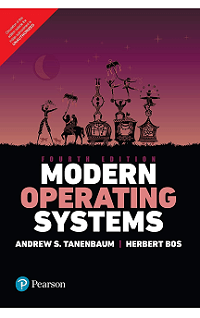
Author: Andrew S Tanenbaum and Herbert BOS This book includes detailed case studies on UNIX, Linux, and Windows 2000 and comprehensive conceptual knowledge about OS designs. Some basic concepts, including I/O, file systems, deadlocks, processes, and memory management, are all researched and discussed. The author's discussion of the previous OS designs will benefit both students and professionals. The book also easily and easily covers the latest operating system technologies and developments. The book's lab experiments and simulation exercises will be useful for operating system professionals and students with backgrounds in Computer Science and Electrical Engineering. Operating Systems: A Modern Perspective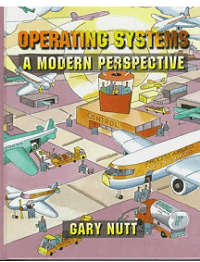
Author: Gary J Nutt The book combines the operating systems design concepts with how they are implemented in the real world. The book includes a comprehensive overview of operating system fundamentals, as well as real-world code samples, algorithms, and numerous talks concerning implementation challenges. Furthermore, the book includes various lab tasks that students can practice with Linux and Windows. The material in the book assists students in distinguishing between the foundations of operating systems and code examples. Furthermore, stress is made on how various operating system components connect to real-world restrictions. UNIX - The Complete Reference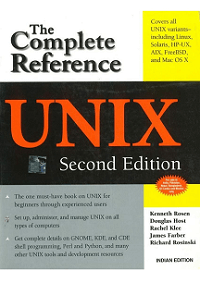
Author: Ken Rosen, James Farber, Douglas Host, Rachel Klee, and Richard Rosinski This operating system book explains the UNIX releases such as FreeBSD, AIX, HP-UX, Solaris 10, and all Linux versions in detail. The book explains how to use UNIX and how to make the most of its tools and applications. There are also new chapters on Samba, UNIX desktops, Java Apache, Python, and UNIX web development. This book lives up to its name as the comprehensive UNIX reference book. It covers everything from writing Python, Shell, Perl scripts to managing emails, security, and setting up Apache Web servers. It may be used by both starters and professionals with prior expertise. Operating Systems: Internals and Design Principles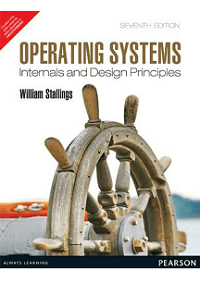
Author: William Stallings This book gives a complete and deep introduction to operating system subjects, focusing on both design issues and fundamental ideas in modern operating systems. The book also gives users a better understanding of the basic operating system components and functions. It covers trade-offs and practical issues that affect the system's design, performance, and security. It also explains and reinforces the design topics while connecting them to the real world. It also discusses the latest OS trends and advanced developments. Operating System Design: The Xinu Approach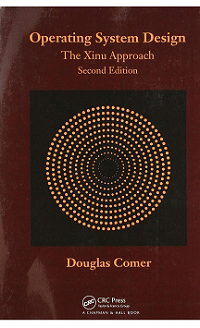
Author: Douglas Comer This OS book is widely lauded for avoiding the usual black box approach found in other OS textbooks. This book's initial version described how operating systems function and how to build one from the ground up. It helps to remove the mystery from OS design, consolidates the body of content into a systematic discipline, and follows a logical system design pattern. It also introduces a hierarchical design approach for organizing major OS components logically and understandably. It helps readers via the process of building a traditional process-based OS using practical and simple primitives. It provides implementation details for a single set of primitives. Once the readers understand how primitives may be used on conventional hardware, readers may easily implement alternative versions. Understanding Operating Systems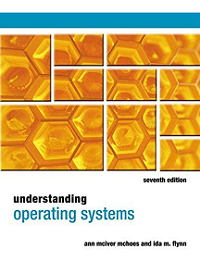
Authors: Ann McHoes and Ida M. Flynn This book provides a clear and easy explanation of both contemporary operating system theory and the latest practices. Its proven approach starts with a valuable discussion of basic concepts before introducing a particular OS. It also analyzes how modern innovations like multi-core processing and wireless technologies have affected the latest OS. It provides fully updated and current content. The revised research topic practical exercises in this book allow the readers to perform independent research on emerging and influential topics. Furthermore, the final four chapters have been updated to include information on the latest versions of UNIX, Linux, Windows, and Android to provide users with the most updated knowledge and abilities for working most successfully with today's systems. Operating Systems: Three Easy Pieces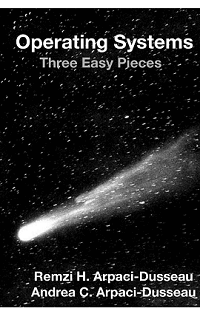
Author: Remzi Arpaci-Dusseau and Andrea Arpaci-Dusseau This book was written in the classrooms of the University of Wisconsin-Madison and has been in the instruction of thousands of students. It was written by professors who have been working on the concept for 20 years. The fundamental concepts of operating systems covered in this book include file and storage systems, processor and memory virtualization, and threads and concurrency. The authors of this text present clear and concise information for students and anybody interested in learning how operating systems work and how to implement the fundamentals to them. Operating Systems: Principles and Practice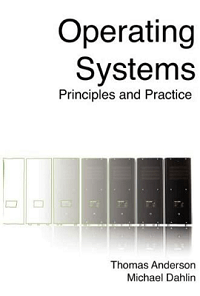
Author: Thomas Anderson and Michael Dahlin It is a textbook for a first course in undergraduate OS. It was written by two great OS researchers with decades of experience in teaching complex concepts to thousands of students and is used at several prestigious colleges. It provides a path for students to follow from high-level concepts to practical code. It is mainly focused on updated industry technologies and practices. ConclusionOperating systems are the defining feature of technology. They work quietly and persistently behind the scenes, and they are the true heroes of the technological revolution. Operating Systems are present, energetic, and attentive in smartphones, computers, and servers. Learning about these giants is a better way to understand better how the deeper things work and interconnect. Choose a book or two to begin your journey into the world of operating systems. |
 For Videos Join Our Youtube Channel: Join Now
For Videos Join Our Youtube Channel: Join Now
Feedback
- Send your Feedback to [email protected]
Help Others, Please Share










